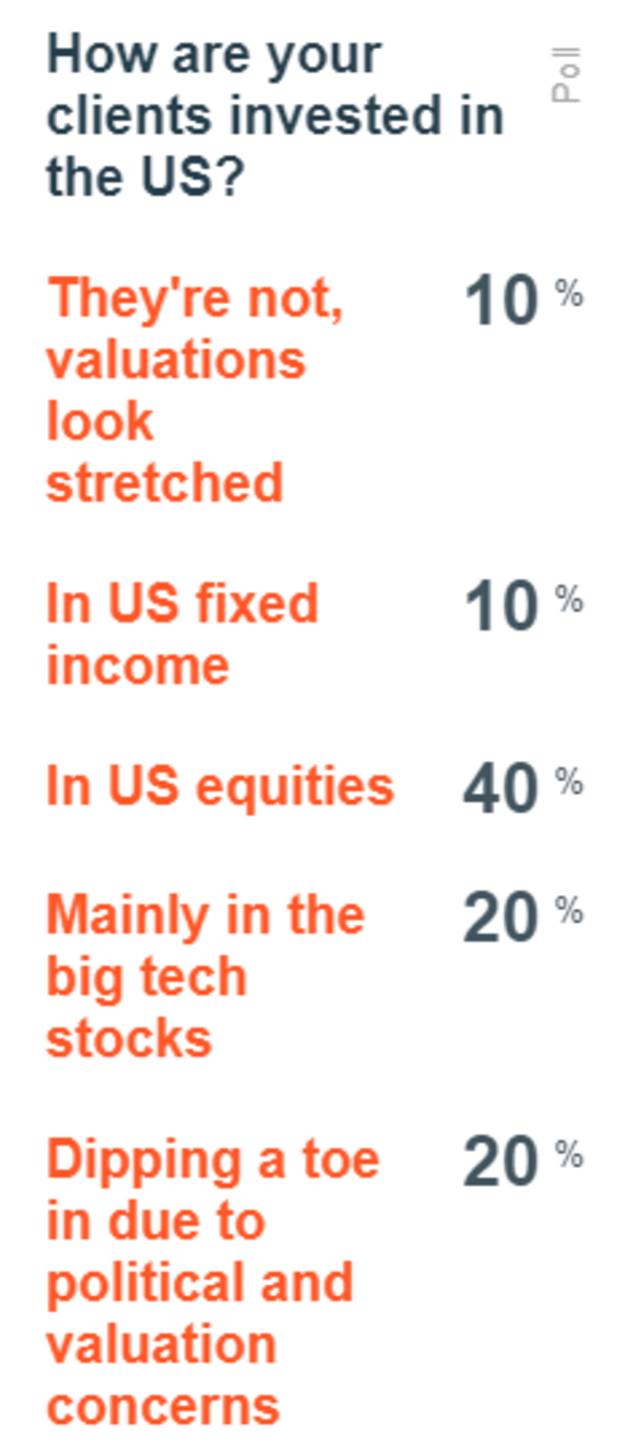
Advised clients with an allocation to the US are holding mainly US equities, with many in the large technology stocks, despite suggestions in some quarters the securities are overpriced.
Clients seem unconcerned about valuations looking top heavy, according to the latest poll by FTAdviser Advantage, which asked, 'how are your clients invested in the US?'
Among the advisers polled, 40 per cent said clients are invested in US equities, while 20 per cent have allocated mainly to the big tech companies, such as Amazon and Apple.
Patrick Connolly, certified financial planner at Chase de Vere, said: “The US market is too big and too important for advisers to ignore and so most of their clients should have exposure there
“However, US equities have performed strongly to the extent that, on most measures, the US stock market looks quite expensive.”
Another 20 per cent of respondents said they had only “dipped a toe” into US equities amid political and valuation concerns, although only 10 per cent said their clients were not invested in the US at all due to expensive valuations.
The level of volatility in the US equity markets has been extremely low in 2017, with only eight days where the S&P 500 moved by more than 1 per cent in either direction, 7IM’s deputy chief investment officer Alex Scott pointed out.
He said it had been more than a year since the S&P 500 last experienced a 5 per cent drawdown, or correction.
Mr Connolly suggested: “Advisers might be worried about market falls, but trying to time markets is incredibly difficult.
It is likely that some advisers have been worried about investing in the US for some time already and their clients might have missed out on stock market growth as a result.
“It is usually best to take a long-term approach and to remain invested, accepting that markets will rise and fall over time.”
“We are investing our clients’ money for the long term, so we should take a long-term view of the asset allocation we apply to their portfolios,” added Darren Cooke, chartered financial planner at Red Circle Financial Planning.
“Study after study has proven that trying to make short-term tactical changes has little to no positive effect on returns, indeed it may actually have a negative effect over the longer term.”
He acknowledged a well diversified portfolio of assets will include appropriate exposure to the US, across large caps but also an exposure to mid and small-caps.
“Likewise a well-diversified portfolio will include an element of global bonds in the fixed interest exposure and that in turn gives an exposure to US,” he noted.
eleanor.duncan@ft.com






